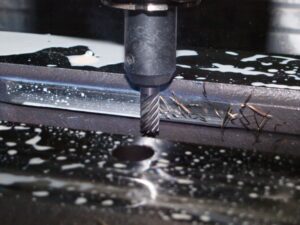
Precision sheet metal fabricators play a critical role in various industries, providing custom-made components and assemblies to meet specific project requirements. One key consideration for those evaluating fabrication partners is their ability to accurately estimate project turnaround time. Customers need reliable estimates to plan their production schedules and meet project deadlines. In this detailed article, we will explore the methods and factors that precision sheet metal fabricators, such as EVS Metal, utilize to estimate turnaround time for their customers’ projects, ensuring timely delivery.
Project Complexity and Scope
The complexity and scope of a project significantly impact the turnaround time estimation. Fabricators like EVS Metal carefully analyze the project’s technical specifications, including the complexity of designs, number of components, required processes, and assembly requirements. Based on this assessment, they can determine the level of effort and resources needed to complete the project, which in turn influences the projected timeline.
Material Availability
The availability of required materials is a crucial factor in estimating turnaround time. Fabricators assess the availability of the necessary sheet metal materials, including their sizes, thicknesses, and finishes. In cases where specific materials are not readily available, additional time may be required for sourcing and procurement. Experienced fabricators like EVS Metal have established relationships with trusted suppliers, ensuring efficient material acquisition.
Production Capacity and Workload
Fabricators consider their production capacity and current workload when estimating turnaround time. They assess the availability of skilled labor, machine capacity, and equipment availability to determine the feasibility of meeting the desired project timeline. EVS maintains a well-organized production schedule, balancing incoming projects to optimize efficiency and minimize lead times.
Manufacturing Processes and Lead Times

The selection of manufacturing and fabrication processes directly impacts the estimated turnaround time. Fabricators evaluate the specific processes involved, such as laser cutting, bending, welding, finishing, and assembly. Each process has its own lead time requirements, and fabricators assess the time needed for each step, including any required setup or changeover time. They leverage their expertise and experience to accurately estimate the duration of each process, ensuring a realistic timeline.
Communication and Collaboration
Open and transparent communication between fabricators and customers is essential for accurate turnaround time estimation. EVS engages in thorough discussions with customers, gathering detailed project requirements so all parties are able to understand any and all specific deadlines. They address any potential challenges or bottlenecks upfront and collaborate with customers to find optimal solutions that align with the desired timeline.
Iterative Feedback and Adjustments
Precision sheet metal fabricators understand that project requirements can evolve during the estimation process. They provide iterative feedback and work closely with customers to refine the scope and timelines based on new information or design modifications. This collaborative approach ensures that the estimated turnaround time remains accurate and realistic throughout the project’s lifecycle.
Continuous Improvement
EVS prioritizes continuous improvement initiatives to enhance operational efficiency and reduce lead times. They analyze historical data, identify areas for optimization, and implement process enhancements to streamline production. By investing in modern technologies, lean manufacturing principles, and employee training, the company can continue to improve its turnaround time estimation accuracy.

Estimating turnaround time for precision sheet metal fabrication projects is a complex process that involves careful consideration of many different factors. EVS Metal’s team combines its technical expertise with experience and effective communication to provide accurate and reliable estimates. By assessing project complexity, material availability, production capacity, and manufacturing processes, and engaging in continuous improvement efforts, they ensure efficient planning and timely delivery for their customers.





